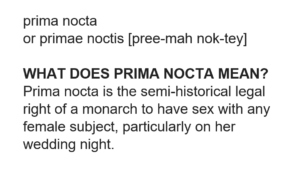Raboyseyee and Ladies,
No bar mitzvah, wedding and or bris shoutouts this week, and in a break with tradition, we will begin with another form of mazel tov. We begin then with two big shout outs and blessings of Yashar Koach to two friends doing big things in the world of charity.
Last night the heylige Ois was in attendance at the Founder’s Dinner, where our friends Penina and Yossie Popack were recognized for establishing the Miriam Popack Chair in Bioethics and the Holocaust at the New Yok Medical College. Mazel tov and chazak!
Also yesterday, word got out that over at Yeshiva University, our dear friends Teri and Andrew Herenstein, marking the first yurtzeit since the passing of the Rabbi Jonathan Sacks, a true Torah giant in his time, created the Rabbi Lord Jonathan Sacks Center for Values and Leadership. Chazak!
———————————————————————————————————————
Avrohom and his Women:
Women, as in many, or at least several? Yes! As we know from the heylige Toirah, Avrohom was married to Soro and because they were childless (exactly for how long, we are not told), she came up with a plan. She was going to be first ever stepmother of sorts and to accomplish this, she suggested and efsher insisted that her husband bed and wed (yes, both) their maidservant Hogor. Shoin. We all know how that worked out; rarely do stepmothers have it easy. This year in our 12th time around this parsha, we shall shine a light on a few pisukim found towards the very end of Chaya Soro where we learn that Avrohom – following Soro’s passing (and some bereavement time; how long we are not told)- fathered six more children. Mamish? Well blow me down: childless until 86, and approximately 140 years of age by now, Avrohom was quite the man. The heylige Toirah tells us -befeirush (in the text itself) that taka he had six more sons. The heylige Toirah also tells us that he treated them no better than he did Yishmoel. He sent them all away from the house, away from his son Yitzchok. What’s up for debate is this: who was the mother of these six children? Who was this babymaker named ketura? She is candidate number one davka because so the heylige Toirah tells us. Or, was Ketura really Hogor, she, mentioned above, and the mother of Yishmoel? And the question is azoy? Why is this even a question? If the heylige Toirah identifies her as Ketura why would one suggest otherwise? Ober guess what? Our sages of yore hotly debated this question and we will explore what a few had to say. Ober, before we get to that, I interrupt myself for this thought.
At the shabbis tish this past Friday night where the heylige Ois, and eishes chayil were guests (along with a few other couples), a friendly but heated debate broke out over the veracity of medroshim. The host -let’s call him Leon- insisted -as he does always- that all these medroshim are mamish emes. How can they all be true when most have opposite views, ver veyst? Let’s take a look at one; you decide.
Guess what? Another parsha and yet another medrish about sexual impropriety. Is anyone surprised? Not! Why the medrish consistently felt compelled to spin sexual content into each parsha, ver veyst, and is above the heylige Ois’s paygrade, ober one thing is zicher: these medroshim are sanctioned content, and are reported and quoted by Rashi and many others. Books and seforim on the medrish are big business. If it’s kosher for them, it’s zicher kosher for the heylige Ois to chazir and report on them. How their minds worked, ver veyst?
In this week’s parsha, it’s time for Yitzchok, now 40 years old, to get married. It’s three years past the akeyda where he nearly lost his life. His father Avrohom (to whom he has not spoken to in several years) employs the services of the first ever shadchan (matchmaker) and instructs him (real name: Eliezer) to travel and find a suitable wife for his son Yitzchok. Why a 40-year-old needed the help of his father, ver veyst? Why he would trust his father after the akeydo incident, also ver veyst? Nonetheless, with the help of the RBSO, Eliezer follows instructions and encounters a young Rivka who meets all the criteria Eliezer set up in his mind and which he verbalized. The heylige Toirah records verbatim all that Eliezer said to himself. Ober, given her young age, her family members are integrally involved in the negotiations for Rivka’s hand in marriage. Let’s introduce the characters: Bisuel was Rivka’s father, Lovon her brother, and there is no mention of Rivka’s mother by name. Her brother Lovon takes charge and leads the discussions with Eliezer. At some point, her father Bisuel joins the conversation. Soon after, Bisuel suddenly appears again and then disappears for good from the conversation. Of course, this popping in and out caught the attention of Rashi who asked azoy: “where was Bisuel” Rivka’s father? Why did Rivka’s father disappear?

Let’s quickly read the posik where Bisuel appears suddenly. Says the heylige Toirah (Bereishis 24:50-51), azoy:
בראשית כד:נוַיַּעַן לָבָן וּבְתוּאֵל וַיֹּאמְרוּ מֵיְ־הוָה יָצָא הַדָּבָר לֹא נוּכַל דַּבֵּר אֵלֶיךָ רַע אוֹ טוֹב.
Then Lovon and Bisuel answered and said, “The matter was decreed by the RBSO; we cannot speak to you bad or good.
כד:נא הִנֵּה רִבְקָה לְפָנֶיךָ קַח וָלֵךְ וּתְהִי אִשָּׁה לְבֶן אֲדֹנֶיךָ כַּאֲשֶׁר דִּבֶּר יְ־הוָה.
Here is Rivka before you; take her and go, and let her be a wife to your master’s son, as the RBSO has spoken.”
The heylige Toirah makes no effort to explain where Bisuel was when Eliezer arrived or why Lovon acted as if he were in charge up until this point. Nor why the household is referred to as her mother’s and not her father’s, if her dad was alive. Moreover, why would Lovon be listed before his father?
In any event, Bisuel Disappears. The story continues with Avrohom’s servant being thrilled with Lovon and Bisuel’s answer. He prostrates himself to the RBSO in thanksgiving and then gives out gifts:
בראשית כד:נג וַיּוֹצֵא הָעֶבֶד כְּלֵי כֶסֶף וּכְלֵי זָהָב וּבְגָדִים וַיִּתֵּן לְרִבְקָה וּמִגְדָּנֹת נָתַן לְאָחִיהָ וּלְאִמָּהּ.
Gen 24:53 The servant brought out objects of silver and gold, and garments, and gave them to Rivka; and he gave presents to her brother and her mother.
All is well until the next morning, when Eliezer wakes up and asks to leave with Rivka that day. Let’s read the relevant pisukim:
בראשית כד:נהוַיֹּאמֶר אָחִיהָ וְאִמָּהּ תֵּשֵׁב הַנַּעֲרָ אִתָּנוּ יָמִים אוֹ עָשׂוֹר אַחַר תֵּלֵךְ.
Gen 24:55 But her brother and her mother said, “Let the maiden remain with us some ten days; then you may go.”
This time her brother and mother answer, her father seemingly gone. And our sages wanted to know what happened to her father. He was there and then suddenly gone? Shoin, taka a good question but not too difficult for the medrish which tells us what took place. Noting the sudden disappearance of Bisuel after posik 50, a number of traditional commentaries suggest that he died in the middle of negotiations. Died from what? What killed him? Says the Medrish Rabbah (also quoted by Rashi), azoy: Bisuel wanted to detain her so he was struck down that night. Ober, struck down by whom? What really happened? Was he murdered? Or, did he pass of natural causes? A heart attack? Was his passing but coincidental? Let’s read the medrish which in Colombo style, figured it all out.
[ויאמר אחיה ואמה] וגו’ ובתואל היכן הוא, ביקש לעכב וניגף בלילה…
Says the Da’as Zekenim MiBaalei HaToisfis azoy: Bisuel poisoned Avrohom’s servant’s food, ober the malach (angel) Gavriel tricked him by switching the plate -have we not seen this plot in many movies while growing up?- and Bisuel wound up eating from the poisoned dish himself. Bottom line: his plot was thwarted and he died from food poisoning. Fartig! Ober, why would Bisuel want Eliezer poisoned and dead?
ד”א שבקשו להאכיל לאליעזר סם המות כדי שישאר להם הממון ובא גבריאל והחליף הקערה אשר בה סם המות ליתנה לאליעזר ונתנה לבתואל ומת:
One pshat suggests that it was all about the money, the valuable gifts Eliezer brought along for the prospective bride’s family. Bisuel wished to feed Eliezer (the shadchan) poison so that he and the family could keep the money, but the Malach Gavriel came and switched the poisoned plater in front of Bisuel. Shoin, Bisuel was dead; he did have a motive and the RBSO interfered. Bottom line: food poisoning!

Ober listen to this amazing pshat. Says the Yalkut Shimoni (Chayei Soro 109) azoy: the townspeople were going to force Bisuel to rape Rivka as part of his prima nocta (“first night”) practice (This refers to the right of a lord in certain cultures to sleep with a woman before her husband on the night of her wedding.) and that he died (God struck him down) to protect her: What?
ומפני מה מת בתואל שהוא היה מלך בארם נהרים וכל בתולה שתנשא בועל אותה לילה ראשונה ואח”כ חוזרת לבעלה נתקבצו כל השרים ואמרו אם הוא עושה לבתו כשם שעשה לבנותינו מוטב ואם לאו אנו הורגים אותו ואת בתו לפיכך מת כדי שינצל אליעזר ורבקה.

Let’s try this in English: Her father was going to rape his own daughter? Bisuel was going to rape his three-year-old daughter? Say it’s not so but the medrish begs to differ. As an aside, exactly how old Rivka was when this story unfolded, is of course subject to great debate. In yeshiva we were taught she was but three, ober others proffer that she was fourteen or even in her twenties. How old was she? Ver Veyst? Back to the incredible medrish which suggests that Lovon was going to rape his daughter Rivka and was going to be so forced to do so by the townspeople? What’s pshat here? What town was this? The medrish continues and tells us azoy: He was king of Aram-naharayim where it was seemingly the king-imposed law to sleep with every virgin to be married and only after, would the deflowered bride be returned to her husband. OMG!! And the medrish gives us this theory as fact in order to better understand why Bisuel disappeared from the text? Seemingly so! How did this play out? Azoy: during the negotiations with Avrohom’s servant Eliezer, the ministers of Aram-Naharayim gathered and said: “If he does it to his own daughter the same way he did it to ours, then fine. Otherwise, we will kill him and his daughter.” What did the RBSO do? To prevent this debacle from unfolding, the RBSO executed a preemptive strike. Bisuel was taken out (killed) in order to save Eliezer and Rivka. You hear this? OMG!
Why the medrish concocted this version, ver veyst?! Nothing in the text supports these highly creative scenarios. The bottom line: as we read the pisukim, Bisuel slipped away without Toirah mention, ober let us not forget that Bisuel also slipped in and that he was not part of the initial conversation between Eliezer and Lovon. Why the medrish decided that Bisuel was a pervert, ver veyst? Is that what happened, ver veyst? But my friend Leon says it did and if the Ois is to be a guest there in the future, it’s best not to argue too vociferously.
Shoin, let’s get back to Avrohom and his women where the heylige Toirah (Bereishis 25: 1-6), tells us azoy:
Avrohom took another wife, whose name was Ketura. 2 She bore him Zimran, Jokshan, Medan, Midian, Ishbak, and Shuah. 3 Jokshan begot Sheba and Dedan. The descendants of Dedan were the Asshurim, the Letushim, and the Leummim. 4 The descendants of Midian were Ephah, Epher, Enoch, Abida, and Eldaah. All these were descendants of Ketura. 5 Avrohom willed all that he owned to Yitzchok; 6 but to Avrohom’s sons by concubines Avrohom gave gifts while he was still living, and he sent them away from his son Yitzchok eastward, to the land of the East.
And here we go with a few questions. The heylige Toirah gives us no background whatsoever regarding Ketura. Who was she, where did she come from? Was she a local shiksa Canaanite woman? A maidservant like Hogor? A woman Avrohom sent for from his home country? Says Rashi with a healthy degree of certitude azoy: Ketura is the same person as Hogor. Why the name change? Did she declare bankruptcy and in need of a name change to get new credit cards? Says Rashi quoting the medrish (Bereishis Rabbah 61:4) where we astoundingly read this, azoy:
קטורה – זו הגר, ונקראת קטורה על שם שנאים מעשיה כקטרת ושקשרה פתחה שלא נזדווגה לאדם מיום שפרשה מאברהם:
And now in English: Ketura: This is Hogor. She was called Ketura because her deeds were as beautiful as incense (קְטֹרֶת), and because she tied (קָטְרָה, the Aramaic for “tied”) her “opening” (a euphemism), for she was not sexually intimate with any man from the day she separated from Avrohom (Tanchuma 8, Bereishis Rabbah 61:4).

You hear this? Ketura tied her opening, if you chap, and that’s why the Toirah changed her name from Hogor to Ketura? Is that what the heylige Toirah tells us? Not! Moreover, why would Avrohom want to marry a woman who was already tied up below? In any event, if this medrish is correct, we can assume that she quickly became untied as she went on to have a very fruitful marriage. Did Avrohom but use Hogor as a baby making machine?
That being asked, Rashi seems confident: Ketura is Hogor. Case closed? Not! Why not? Because the Rashbam, the Radak and the Ibn Ezra -a powerful triumvirate to say the least- following a simple reading of the text, state unequivocally that Ketura is not Hogor, but a different woman. Was the Medrish Rabba -knowing how Avrohom coldly chased Hogor away, romantically hoping for a reunion between lost lovers and then decided that Ketura was Hogor? Sounds plausible, ober it is emes? Was the medrish imaging Avrohom reverting to a woman with whom he once lived? Whatever the reason, the heylige Toirah’s total silence concerning any details about her is what makes such a midrashic leap possible. It’s what the medrish does best; it plugs holes. In any event, it’s nice to read that Avrohom efsher longed for the woman his wife Soro -with the OK from the RBSO- forced him to expel.
The bottom line: forty years earlier Soro complained that her husband Avrohom was too old and perhaps past childbearing years. Forty years later, at 140, he was suddenly youthful and rejuvenated? Was he the recipient of youth stem cells? Whatever it was that energized him, he was seemingly vigorous enough to rear six more children. Mazel tov!
Whatever the case, the questions are azoy: Did He marry her? Was Ketura -or old Hogor under a new name- his new wife, or but a shiksa concubine? And we ask because the heylige Toirah introduces Ketura as a bona fide wife, ober in Posik 6 there is a reference to Avrohom’s “concubines.” Who are these concubines? Did Avrohom marry Ketura who gave him six more kids and also have a bunch of concubine son the side? Well, blow me down!

So many dizzying questions; what’s pshat here? Shoin, for that we dig into Divrei Hayomim (1:32), aka: The Book of Chronicles, where Ketura is called a concubine from the start, “The sons of Ketura, Avrohom’s concubine.” However, this doesn’t change the fact that the Toirah calls her a wife and it doesn’t deal with the problem that Ketura is one person/concubine, not many. What’s pshat? How do we reconcile one to many? Not to worry because says the Radak so gishmak, azoy:
- הוסיף לקחת עוד אשה כי כבר היו לו שתים ועוד הוסיף ולקח השלישי’ כדי לשמשו לעת זקנותו, ולהוליד ג”כ להרבות זרעו בעולם, ולא הקפיד בזו מאיזה עם ומאיזה משפחה תהיה כיון שזרעו המיוחד שהוא יצחק היה מאשה שהיתה ממש ממשפחתו, והשיא ליצחק גם כן אשה ממשפחתו ולא חשש על שאר הבנים מאיזה עם יהי’אבל ודאי אשה כשרה בקש לו שלא תהיה מרת רוח בזקנותו ושמר גם כן שלא תהיה מבנות כנען, כי הגר מצרית היתה ולא כנענית, והגר היתה אשה לאברהם כמו שאמר לו לאשה, וקטורה גם כן היתה לו לאשה כמו שאמר ויקח אשהומלבד אלו היו לו מהם בנים ולא זכר אלא בני הנשים, והנשים היו בנשואין בחופה ובמשתה והפילגשים ביחוד לבד שהיו מיוחדת לו למשכבו.
[Avrohom] took another wife, for he already had two and this was his third. She would assist him in his old age and give birth to more children to help his seed populate the earth. He didn’t concern himself with her nationality or her family since his main son Yitzchok came from a woman who was literally part of his family, and he married Yitzchok off to a woman who was from his family – so he did not worry about what nation the other sons were part of. Certainly, the woman (Ketura) was a fitting person (kesheira) and she was not bitter about his old age. [However, Avrohom must have] made sure that she was not a Canaanite, for Hogor was an Egyptian not a Canaanite, and Hogor had also been Avrohom’s wife just as Ketura became his wife. Other than these, [Avrohom] had other [women] from whom he produced children, but [the Toirah] does not tell us their names, only the children of the wives.
The wives were married with chuppah and a celebration but the concubines only with yichud (being alone), i.e. they were intimate only with him. You hear this? According to the Radak above, in his later years, Avrohom was quite active sexually with several women in order to populate the world, and this approach, if emes, does solve some of the interpretive problems in the text. And that’s why Raboyseyee, you have to love the medrish. They were zicher well versed in the heylige Toirah, pointed out oddities and lacunas, and them went about methodically plugging each one. Avrohom seemingly did the same.
A gittin Shabbis-
The Heylige Oisvorfer Ruv
Yitz Grossman
